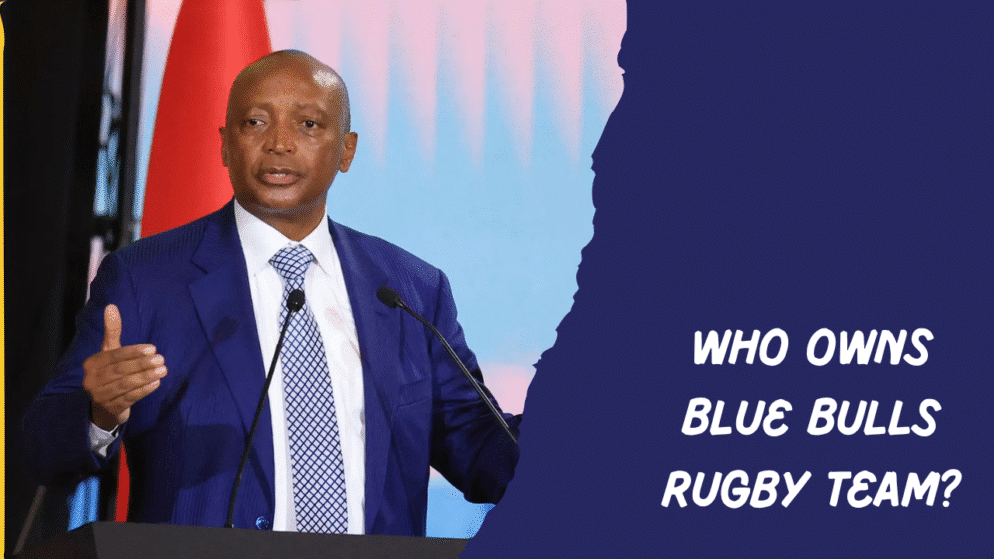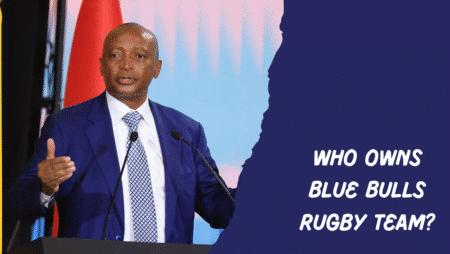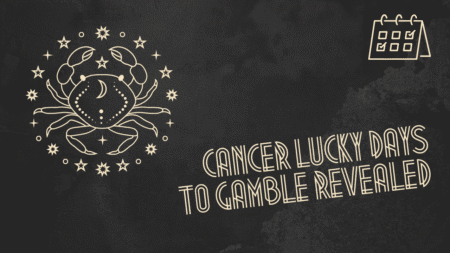

The ownership structure of South African rugby’s most successful franchise, the Blue Bulls, represents a fascinating blend of traditional rugby heritage and modern business investment. Understanding who owns this iconic team requires examining both its historical foundations and recent corporate developments that have reshaped professional rugby in South Africa.
The Blue Bulls Rugby Union: The Foundational Owner
The Blue Bulls Rugby Union (BBRU), originally established in 1938 as the Northern Transvaal Rugby Union, serves as the foundational governing body for the Blue Bulls franchise. This union broke away from the Transvaal Rugby Union with the specific purpose of establishing a competitive rugby presence in the northern regions of South Africa, covering Pretoria, parts of Gauteng Province, and all of Limpopo Province.
The union was formed when Northern Transvaal, captained by Danie Craven, played its first home game as an independent union on 28 May 1938, drawing 11-11 against the Orange Free State. Over its 87-year history, the union has become synonymous with rugby excellence, building a legacy that includes numerous Currie Cup victories and establishing the foundation for what would become South Africa’s most successful Super Rugby franchise.
The Blue Bulls Company: Modern Professional Structure
The professional operations of the Bulls franchise are managed through the Blue Bulls Company (BBCo), which was established to handle the commercial and competitive aspects of the modern game. This corporate structure reflects the evolution of rugby from amateur sport to professional entertainment business, requiring sophisticated management of player contracts, sponsorships, and international competitions.
The company operates both the Bulls team that competes in the United Rugby Championship (formerly known as Pro14 and including teams from Ireland, Italy, Scotland, and Wales) and the Blue Bulls team that participates in South Africa’s domestic Currie Cup competition.
Current Ownership Structure: A Three-Way Partnership
The current ownership of the Blue Bulls Company reflects a strategic partnership between three major stakeholders: the Blue Bulls Rugby Union holds 26% ownership, while two prominent South African businessmen control the remaining shares – Johann Rupert’s Remgro owns 37%, and Patrice Motsepe acquired an equal 37% stake in November 2019.
Johann Rupert and Remgro (37% Ownership)
Johann Rupert, one of South Africa’s wealthiest individuals and chairman of luxury goods company Richemont, has been involved with the Bulls through his investment company Remgro for several years. Remgro previously held a majority stake in the franchise before the recent restructuring. Rupert’s involvement represents traditional South African business investment in sports, reflecting the cultural importance of rugby in the country’s sporting landscape.
Patrice Motsepe’s Historic Investment (37% Ownership)
Patrice Motsepe’s acquisition of a 37% stake in 2019 marked a historic moment for South African rugby, bringing together two of the country’s richest men as co-owners of the franchise. Motsepe, a mining magnate and owner of Mamelodi Sundowns football club, has long been interested in creating synergies between his sporting investments.
The strategic rationale behind Motsepe’s investment extends beyond rugby. In 2019, there was a strategic decision to infuse capital into the Blue Bulls company, aiming to elevate the stature of Tshwane as the sporting hub of South Africa, in partnership with SuperSport Park in nearby Centurion. This vision encompasses creating a comprehensive sports and entertainment precinct in the greater Pretoria area.
Blue Bulls Rugby Union (26% Ownership)
The Blue Bulls Rugby Union maintains a 26% stake in the professional operations, ensuring that the traditional rugby community retains significant influence in the franchise’s direction. This structure ensures continuity with the union’s historical mission while allowing for the commercial expertise and financial resources that private investment brings.
Governance and Decision-Making
With an equal split in ownership between Rupert’s Remgro and Motsepe, the control of the Blue Bulls Company is balanced, with the Union playing a crucial role as a mediator. This governance structure prevents any single private investor from dominating the franchise while ensuring that rugby heritage and community connections remain central to the organization’s identity.
The South African Rugby Union’s constitution currently doesn’t allow its unions to acquire more than 75% private investment in its business. This regulatory framework ensures that rugby unions maintain meaningful control over their professional franchises, balancing commercial objectives with sporting and community responsibilities.
Sponsorship and Naming Rights
The franchise is known as the Vodacom Blue Bulls for sponsorship reasons, with mobile communications company Vodacom serving as the main sponsor since 2005. Previously, the team was sponsored by ExxonMobil and known as the Mobil Blue Bulls. These sponsorship arrangements provide crucial revenue streams while allowing the core ownership structure to remain unchanged.
Looking Forward
The current ownership structure positions the Blue Bulls as one of the most financially stable rugby franchises in South Africa. The combination of Motsepe’s sports business expertise, Rupert’s investment acumen, and the rugby union’s traditional governance creates a strong foundation for future success both on and off the field.
This ownership model may serve as a template for other South African rugby franchises seeking to balance heritage with commercial viability in an increasingly competitive international rugby landscape. The Bulls’ success in competitions like the United Rugby Championship demonstrates how effective governance and strategic investment can elevate a traditional rugby franchise to compete on the global stage.
The question of who owns the Blue Bulls ultimately reveals a sophisticated partnership between rugby tradition and modern business investment, creating a sustainable model for professional rugby in South Africa while honoring the sport’s deep cultural roots in the region.








